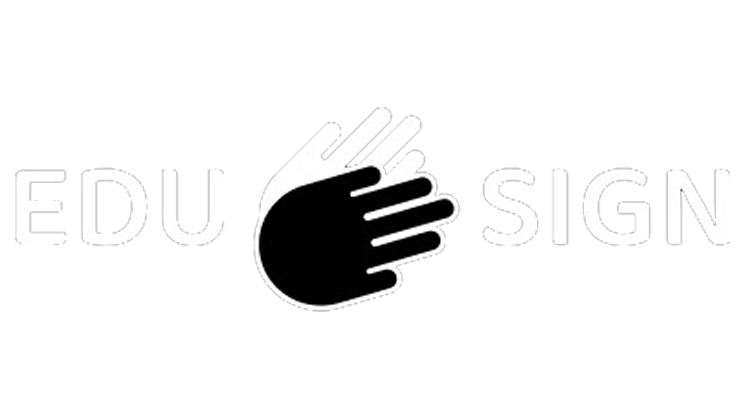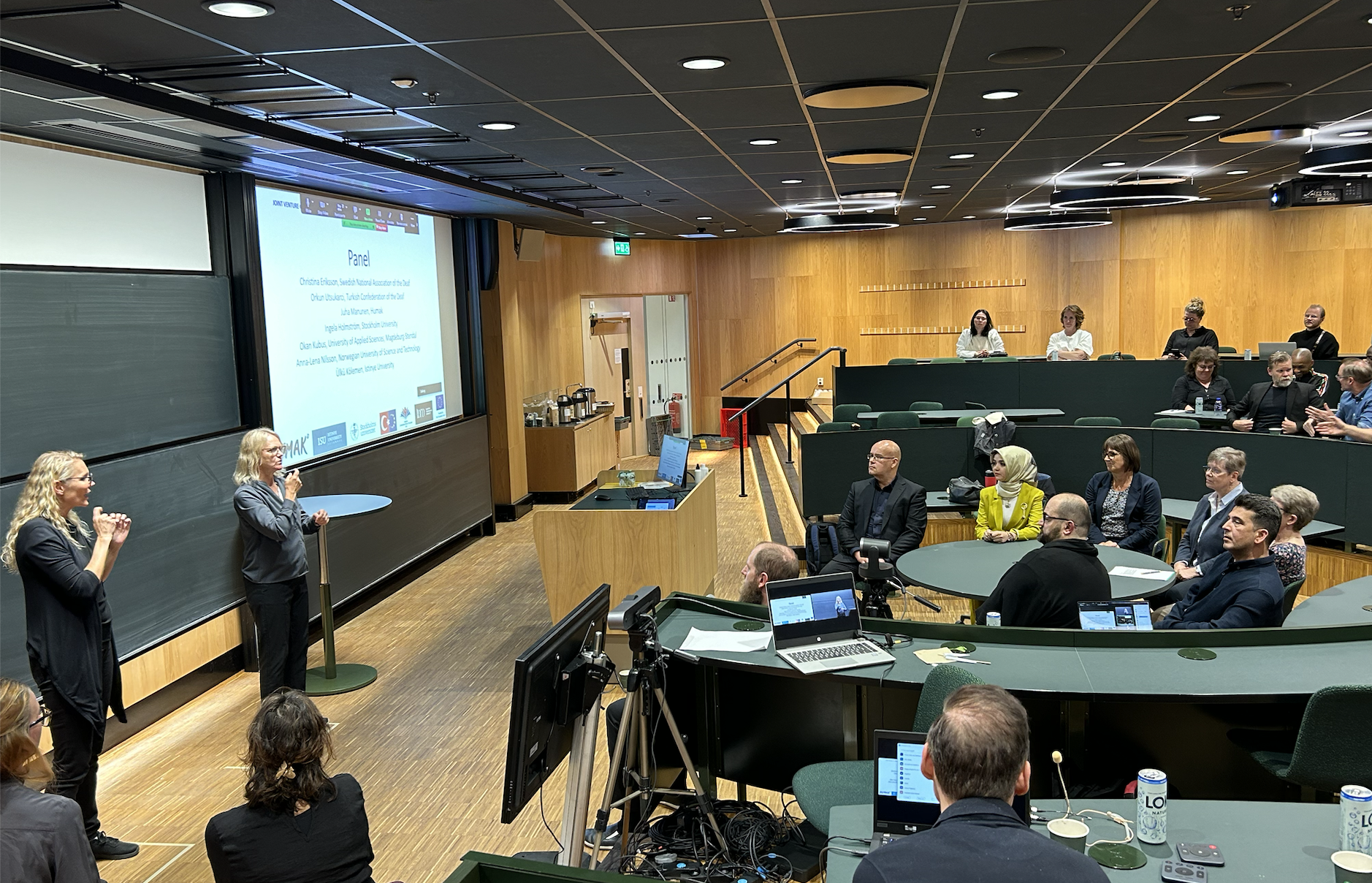Under the coordination of Istinye University, Stockholm University from Sweden, HUMAK University of Applied Sciences from Finland, Turkish Confederation of the Deaf, Association of Sign Language Interpreters, and with the joint support of the EU Commission and Turkish National Agency, "EDUSIGN & SIGNEDU: Joint Venture of Curriculum Studies and Artificial Intelligence in Sign Language" project, "Sign Language and Deaf Studies Conference" with international participants was held in Stockholm on June 14, 2024 by the project partner Stockholm University. Representatives of project partner institutions, graduate students, sign language interpreters and lecturers from universities participated in the conference.
Held on Friday, June 14th, the conference on The challenges and opportunities of sign language interpretation attracted attention with its richness of presentations and successful multilingual simultaneous interpretations.
In the morning session of the conference, Hasan Dikyuva from the Max Planck Institute for Psycholinguistics in the Netherlands talked about the current status of Turkish Sign Language and the publications and studies in this field. He mentioned the lack of resources for teaching Turkish Sign Language and emphasized the need for more studies in this field.
Prof. Dr. Johanna Mesch from Stockholm University talked about scientific studies including observations on access to information about Covid-19 published in sign language during the pandemic in Sweden and Finland. She stated that limitations and deficiencies were observed in access to information in sign language.
In the afternoon session, Nora Duggan from Stockholm University discussed the difficulties faced by deaf migrants in Sweden in terms of interpreting services. She pointed out that although sign language interpreting services are widespread in the country, there are shortcomings and improvements need to be made in accessing these services.
Helena Sikh, an experienced sign language interpreter from Fellingsbro Folkhögskola, talked about the process of official authorization of Sign Language Interpreters in Sweden and emphasized the importance of professional experience in determining the quality of the interpreting profession as well as the effects of various examinations and certification practices.
Prof. Dr. Anna-Lena Nilsson from the Norwegian University of Science and Technology talked about the role change and development of sign language interpreter training until today. She gave examples of how a sign language interpreter, who used to only be asked for help in a social setting to interpret in times of need, had to carry other responsibilities and roles as sign language interpreting became a profession at the end of the professional training and development processes.
Prof. Dr. Okan Kubus from the Magdeburg-Stendal University of Applied Sciences gave the students' views on the sign language interpreting curriculum at their schools and stated that the number of students enrolled in the program has decreased and that there is a need for analysis and evaluation studies.
The conference ended with a panel discussion where the participants expressed their final wishes and opinions on the conference themes and project main topics. All panelists expressed their pleasure for participating in the conference and emphasized that this project work is commendable both as a very good example of international academic cooperation and as a visible contribution to deaf studies.
We would like to thank all our project partners and the audience for their valuable participation.



